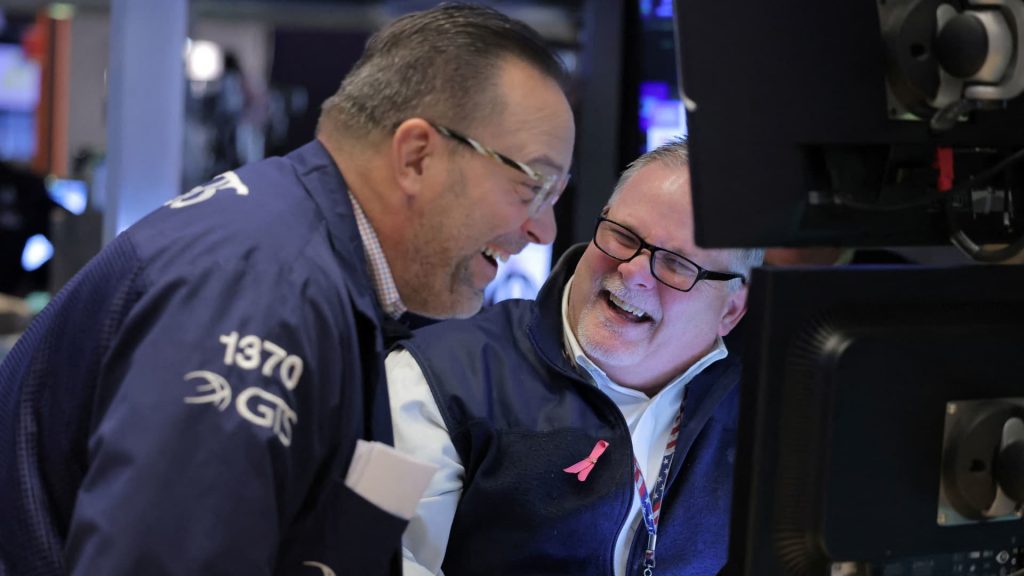Traders work on the trading floor at the New York Stock Exchange.
Andrew Kelly | Reuters
Stocks rebounded Friday following the Dow Jones Industrial Average‘s worst session in more than a year as traders cheered a stronger-than-expected jobs report and looked past a jump in rates.
The 30-stock Dow climbed 307.06 points, or 0.8%, to settle at 38,904.04. The S&P 500 gained 1.11% to end the day at 5,204.34. The tech-heavy Nasdaq Composite advanced 1.24%, closing at 16,248.52.
Despite the bounce, all three indexes posted a losing week. The Dow slid 2.27%, posting its worst weekly performance in 2024. The S&P 500 declined 0.95% during the period, while the Nasdaq lost 0.8%.
On Friday, Treasury yields jumped following the Labor Department’s report showing that job growth totaled 303,000 in March. Nonfarm payrolls were expected to increase by 200,000, according to Dow Jones estimates. Wages rose 0.3% for the month and 4.1% from a year ago, both in line with estimates.
Investors are torn between wanting a strong economy to support further corporate earnings growth and wanting a weaker jobs market that will give the Federal Reserve the green light to begin cutting interest rates.
“Markets are understandably confused, but the underlying economic circumstances which are the actual data series being released, like the jobs report, just continue to affirm two things: strong employment growth … and that the economy is not anywhere near recession,” said Jamie Cox, managing partner of Harris Financial Group.
“At the end of the quarter, markets ran up a lot more than they should have, so there was going to be some selling pressure regardless this week,” he continued, adding that this week’s sell-off was accelerated by fears of escalation in the Middle East and inconsistent speeches from various Fed speakers.
The Dow tumbled about 530 points, or 1.35%, on Thursday, marking its biggest daily drop since March 2023 and its fourth consecutive losing session. A jump in crude oil and comments from Minneapolis Federal Reserve President Neel Kashkari, where he questioned if interest rates should come down amid sticky inflation, were behind the pullback.


